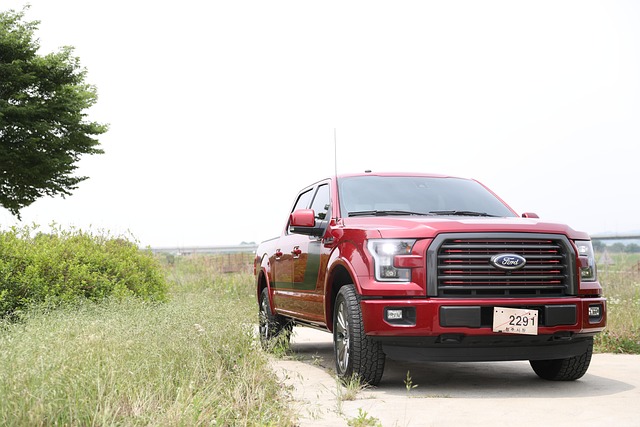What to Understand About the Future of the Ford F-150 and Its Loyal Fanbase
Long recognized for its power and tradition, the Ford F-150 has been a cornerstone in the truck world. But a recent decision surrounding its future is stirring deep emotions among longtime enthusiasts. As Ford pivots toward updated efficiency standards, some fans are expressing concern about what’s being left behind. This exploration looks at what’s driving the shift and how it's being received by those who’ve come to rely on the F-150’s legacy.

Why Are Hybrid Pickup Trucks Causing Division Among Ford Fans?
The introduction of hybrid pickup trucks represents more than just a technological upgrade for Ford—it’s a cultural shift that challenges decades of truck tradition. Many F-150 owners view their vehicles as symbols of American industrial strength and reliability, characteristics they associate specifically with traditional gasoline engines. The hybrid F-150 PowerBoost, while offering improved fuel economy and increased torque, has sparked debates about whether electrification compromises the authentic truck experience that generations of families have come to expect.
Ford’s decision to offer hybrid options stems from both regulatory pressures and consumer demand for better fuel efficiency. However, some loyal customers worry that the complexity of hybrid systems could affect the legendary durability and simplicity that made the F-150 a workhorse favorite across industries from construction to agriculture.
What’s Behind the Electric Truck Controversy Surrounding Ford’s Strategy?
The electric truck controversy intensified with Ford’s launch of the F-150 Lightning, an all-electric version of their flagship model. While the Lightning has received positive reviews for its performance capabilities and innovative features like powering entire homes during outages, it has also faced significant resistance from traditional truck buyers who question the practicality of electric vehicles for heavy-duty applications.
Critics point to concerns about towing range, charging infrastructure in rural areas, and the higher upfront costs associated with electric vehicles. Many truck owners work in remote locations where charging stations remain scarce, making range anxiety a legitimate concern for their daily operations. Additionally, some view the shift toward electrification as disconnected from the practical needs of blue-collar workers who form a significant portion of F-150’s customer base.
How Does the Gas vs Electric Trucks Debate Impact Consumer Choices?
The gas vs electric trucks discussion extends beyond simple preference to encompass practical considerations that directly affect truck buyers’ livelihoods. Traditional gasoline F-150s offer advantages in terms of refueling speed, infrastructure availability, and proven reliability over hundreds of thousands of miles. Fleet managers and individual owners alike have decades of experience maintaining and operating gas-powered trucks, creating institutional knowledge that doesn’t easily transfer to electric alternatives.
Electric trucks, conversely, provide benefits including lower operating costs, reduced maintenance requirements, and superior torque delivery from zero RPM. The F-150 Lightning can accelerate faster than its gasoline counterparts while offering features like over-the-air updates and advanced connectivity options. However, the transition requires changes in operational procedures, infrastructure investments, and workforce training that many businesses find challenging to implement.
What Role Does Geographic Location Play in Truck Preference?
Geographic factors significantly influence the adoption rates of different F-150 variants across various regions. Urban and suburban areas with established charging networks show higher acceptance rates for electric and hybrid models, while rural communities continue favoring traditional gasoline engines. This divide reflects practical realities rather than simple resistance to change—rural truck owners often travel longer distances between destinations and require vehicles capable of operating independently from grid infrastructure.
Cold climate regions present additional challenges for electric truck adoption, as battery performance decreases in extreme temperatures. Many northern states, where F-150s are particularly popular for their capability in harsh weather conditions, remain skeptical about electric alternatives that may struggle in the demanding conditions where traditional trucks have proven their worth.
How Are International Truck Markets Responding to Ford’s Evolution?
Globally, the pickup truck market shows varying responses to electrification efforts, with different regions prioritizing different aspects of truck capability. European markets, where fuel costs remain higher and environmental regulations stricter, show greater acceptance of hybrid and electric alternatives. However, markets like Australia and parts of South America, where trucks frequently operate in remote areas with limited infrastructure, continue emphasizing traditional powertrains.
Ford’s international strategy reflects these regional differences, with some markets receiving hybrid options before electric variants, allowing local consumers to gradually adapt to new technologies. This phased approach helps preserve brand loyalty while acknowledging that the transition timeline varies significantly across different global markets and use cases.
What Are the Real-World Costs of Different F-150 Options?
Understanding the financial implications of choosing between gas, hybrid, and electric F-150 variants helps consumers make informed decisions based on their specific circumstances and usage patterns. The cost analysis extends beyond purchase price to include fuel, maintenance, and operational expenses over the vehicle’s lifetime.
| F-150 Variant | Starting MSRP | Fuel/Energy Cost (Annual) | Maintenance Cost (Annual) |
|---|---|---|---|
| Regular Gas V6 | $37,000 | $2,400 | $1,200 |
| PowerBoost Hybrid | $52,000 | $1,800 | $1,100 |
| Lightning Electric | $60,000 | $1,100 | $800 |
Prices, rates, or cost estimates mentioned in this article are based on the latest available information but may change over time. Independent research is advised before making financial decisions.
Will Truck Loyalty Backlash Affect Ford’s Long-Term Strategy?
The truck loyalty backlash represents a significant challenge for Ford as they balance innovation with customer retention. Some longtime F-150 owners have expressed intentions to explore competitors like Ram or Chevrolet if Ford continues prioritizing electrification over traditional powertrains. However, Ford’s approach of maintaining multiple powertrain options rather than completely abandoning gasoline engines suggests recognition of their diverse customer base needs.
Market research indicates that loyalty patterns may evolve as younger buyers, more comfortable with electric technology, begin replacing older truck owners. Ford’s challenge lies in managing this transition without alienating existing customers while attracting new ones who prioritize environmental considerations and technological advancement over traditional truck attributes.
The future of the Ford F-150 reflects broader changes occurring throughout the automotive industry, where environmental concerns, technological capabilities, and traditional preferences intersect in complex ways. While the transition creates temporary tension among longtime enthusiasts, Ford’s multi-pronged approach offering gas, hybrid, and electric options provides choices that can accommodate diverse customer needs during this period of automotive evolution. The ultimate success of this strategy will depend on Ford’s ability to maintain the core capabilities and reliability that built the F-150’s reputation while adapting to changing market demands and regulatory requirements.




